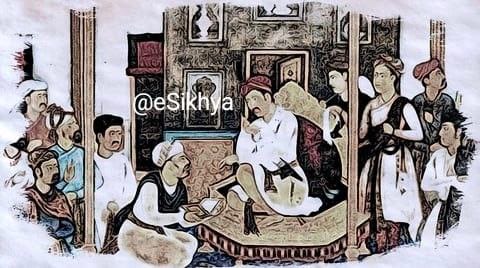
Barani, also known as Ziauddin Barani, was a prominent 14th-century Indian historian, scholar, and political philosopher. His work provides valuable insights into the political and social conditions of medieval India. Barani is best known for his historical chronicles and his treatise on political theory, particularly his work Fatawa-i-Jahandari.
Introduction to Ziauddin Barani
- Historical Context: Barani lived during the reign of the Delhi Sultanate, a period marked by significant political and social changes in northern India. His writings reflect the turbulent times and the complexities of political life in medieval India.
- Works: Barani’s most notable works include:
- Tarikh-i-Firuz Shahi: A historical chronicle covering the reign of Sultan Firuz Shah Tughlaq of the Delhi Sultanate.
- Fatawa-i-Jahandari: A treatise on political theory and governance that outlines Barani’s views on the ideal polity and the principles of statecraft.
Ideal Polity According to Barani
Barani’s political philosophy, particularly as expressed in the Fatawa-i-Jahandari, is deeply influenced by Islamic principles and the socio-political realities of his time.

Here are the key elements of Barani’s ideal polity:
- Role of the Sultan
- Moral and Ethical Leadership: Barani emphasizes the importance of the Sultan (king) as a moral and ethical leader. The Sultan should act in accordance with Islamic principles and ensure that his rule is just and virtuous.
- Divine Right and Authority: The Sultan’s authority is viewed as divinely ordained, and his legitimacy is based on his adherence to Islamic law (Sharia) and his ability to govern effectively.
- Governance and Administration
- Centralized Authority: Barani advocates for a centralized form of governance where the Sultan holds supreme authority. The administrative system should be efficient and responsive to the needs of the state.
- Bureaucracy: A well-organized bureaucracy is crucial for effective governance. The Sultan should appoint capable and honest officials to manage various administrative functions.
- Justice and Law
- Adherence to Islamic Law: The ideal polity, according to Barani, must be governed by Islamic law. The Sultan is responsible for ensuring that laws are fairly implemented and that justice is served.
- Judicial Integrity: The judiciary should be independent and impartial, upholding the principles of justice and protecting the rights of individuals.
- Social Harmony and Welfare
- Promotion of Public Welfare: The Sultan should focus on the welfare of the people, ensuring that their needs are met and that social harmony is maintained. This includes addressing issues related to poverty, education, and public health.
- Social Order: Maintaining social order and stability is a key responsibility of the Sultan. Barani believes that a well-ordered society is essential for the prosperity and stability of the state.
- Military and Defense
- Strong Military Leadership: Barani emphasizes the importance of a strong and disciplined military to protect the state from external threats and maintain internal order.
- Strategic Planning: The Sultan should engage in strategic planning and military preparedness to ensure the security and stability of the realm.
- Diplomacy and Foreign Policy
- Strategic Alliances: Forming strategic alliances and managing relations with neighboring states are important aspects of foreign policy. The Sultan should use diplomacy to advance the state’s interests and ensure its security.
- Ethical Governance
- Personal Integrity: The Sultan’s personal integrity and adherence to ethical principles are crucial for the legitimacy and effectiveness of his rule. Corruption and moral decay among rulers can undermine the state’s stability.
Conclusion
“Ziauddin Barani” vision of the ideal polity reflects a blend of Islamic principles and practical considerations relevant to the governance of medieval India. His emphasis on moral leadership, adherence to Islamic law, efficient administration, and social welfare highlights his commitment to creating a just and orderly state. Barani’s ideas provide valuable insights into the political philosophy of his time and the challenges faced by rulers in maintaining effective governance.
